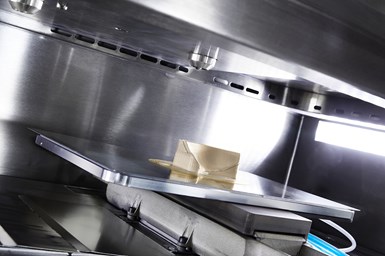Arburg Freeformer Prints Implants Made from Medically Approved PEEK
Formnext 2021: Arburg’s Freeformer 300-3X processes medically approved PEEK for the first time, using Evonik’s original Vestakeep i2 G plastic to create customized skull implants, including support material.

A Freeformer 300-3X processes medically approved PEEK for the first time, using Evonik’s original Vestakeep i2 G plastic to create customized skull implants, including support material.
Arburg is expanding its range of materials for its Freeformer 300-3X which can now convert medically approved Evonik PEEK originals into implants. PEEK is formed from medically approved original plastic granules, which can be an advantage for the additive manufacturing (AM) industry as it can also be used for technical parts.
PEEK (polyether ether ketone) is of particular interest for medical technology applications, the company says. Arburg’s Freeformer 300-3X, which is designed for high-temperature applications, can convert its partner Evonik’s original Vestakeep i2 G plastic granules into customized skull implants for the first time. The original material, which is approved for permanently implantable medical devices, broadens the application spectrum across which Arburg Plastic Freeforming (APF) can be used.
The APF process is of particular interest when it comes to practical use in medical technology, as it enables process quality to be reliably documented and for each component to be carefully traced, the company says. It is said Arburg’s Freeformer machines can additively manufacture positive material bonds in hard/soft combinations and convert very soft original materials into fully functional parts. The machines use APF to process original plastic granules in the production of these complex functional parts, which is said to make them well suited for the medical, OEM and automotive industries.
Related Content
-
8 Ways the Plastics Industry Is Using 3D Printing
Plastics processors are finding applications for 3D printing around the plant and across the supply chain. Here are 8 examples.
-
ActivArmor Casts and Splints Are Shifting to Point-of-Care 3D Printing
ActivArmor offers individualized, 3D printed casts and splints for various diagnoses. The company is in the process of shifting to point-of-care printing and aims to promote positive healing outcomes and improved hygienics with customized support devices.
-
Researchers Develop Method for Creating Customized 3D Printed Metals With Contrasting Properties
Researchers were able to use 3D printing techniques and tweak printing parameters to produce a 3D printed metal with different microstructures that create stronger and weaker regions in the exact locations in the metal that they wanted.










